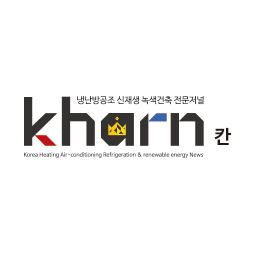 On December 30, the Ministry of Trade, Industry and Energy (Minister Sung Yun-mo) announced the ‘2021 Industrial Technology Innovation Project Integrated Implementation Plan’ containing a plan to support R&D for industrial technology worth KRW 4.95 trillion.
On December 30, the Ministry of Trade, Industry and Energy (Minister Sung Yun-mo) announced the ‘2021 Industrial Technology Innovation Project Integrated Implementation Plan’ containing a plan to support R&D for industrial technology worth KRW 4.95 trillion. In 2021, the amount of support for industrial technology R&D projects increased significantly from 4.17 trillion won in 2020 to 4.95 trillion won, an increase of 18.7%. This is the highest level ever, reflecting the government’s commitment to the need to expand R&D support in the industry that will lead the future new growth field even in the midst of the economic crisis caused by the global spread of Corona 19.
The Ministry of Industry and Industry continued to expand investments in the existing materials, parts and equipment sectors and three new industries for innovative growth, while further reinforcing investments to realize carbon neutrality with the Korean Pan New Deal, including the Digital New Deal and Green New Deal.
The investment fields for the industrial technology R&D business of the Ministry of Industry are △Green New Deal·Carbon Neutral △ Full-cycle research on materials, parts, and equipment △ New innovative growth business △ Digital New Deal △ Manpower training and local economy activation.
A total of 8582 billion won will be invested in the Green New Deal and carbon neutrality to achieve 2050 carbon neutrality such as energy efficiency, hydrogen economy activation, and new renewable energy diffusion.
R&D projects supported for the Green New Deal and carbon neutrality are △Development of new and renewable energy core technologies (283.9 billion won) △Development of core energy demand management technologies (214 billion won) △Clean production-based industrial symbiosis technology development (9.1 billion won) △Renewable energy power System-linked high-capacity, high-voltage modular ESS technology development (3.7 billion won) △ Green hydrogen production and storage system technology development (10 billion won) △ High-reliability, long-period large-capacity RFC-ESS technology development (9.9 billion won) △ Large-scale CCS integration demonstration and CCU commercialization foundation Establishment (8.6 billion won) △Development of technologies to reduce greenhouse gas and fine dust simultaneously in the manufacturing sector (4 billion won) △Development of limit-breaking decarbonization supply technology (12 billion won) △ Net-zero industrial innovation foundation (11 billion won), etc. It is promoted as a business and a new business.
In response to the reorganization of the global supply chain of materials, parts and equipment, 1.5 trillion won will be invested in research and development for the entire life cycle of materials, parts and equipment, from technological independence and commercialization of core items. Increased by 21.8% compared to 2020 △ Material parts technology development (878.6 billion won) △ Material parts industry technology development foundation (195.4 billion won) △ Material parts global investment-linked technology development (9.7 billion won) △ Material parts and equipment innovation lab technology development It is supported for R&D such as (16.7 billion won).
KRW 9665 billion will be invested in new innovative growth businesses that will lead future growth food such as system semiconductors, future cars, and biotechnology. △ Next-generation intelligent semiconductor technology development (63.7 billion won) △ Automobile industry technology development (157.6 billion won) △ Bio industry technology development (110.7 billion won) △ Strategic product creation Global K-Pepris development technology development (6 billion won) △ Ultra-safe driving platform It is expected to be invested in core technology development (6 billion won) and national new drug development (15.1 billion won).
KRW 231.8 billion was allocated for the digital new deal to advance into a digital-based economic system through advancement of non-face-to-face core technologies and DNA (data, network, AI), etc.△ Bio Big Data Construction Pilot Project (7.3 billion KRW) Establishment of a robot demonstration base (9.6 billion won) △National reference standard data development and distribution (6.8 billion won) △Service core technology development (21 billion won) △Industrial intelligence leading value chain development project (7.6 billion won) △Big data-based automotive electronics reliability technology It is invested in upgrading (6.3 billion won).
KRW 154.3 billion is invested in manpower training programs to effectively respond to the deterioration of employment due to the economic crisis, and KRW 280.6 billion is invested in revitalizing the local economy, such as building a R&D infrastructure for strengthening regional-centered innovation growth capabilities. △Industrial innovation talent growth support (114.3 billion won) △ Energy manpower training project (44.5 billion won) △ Industrial cluster competitiveness reinforcement project (72.2 billion won) △ Smart specialization infrastructure construction (112.4 billion won).
The Ministry of Industry provides project information through the website of dedicated organizations such as the Korea Institute of Industrial Technology Evaluation and Planning in order to provide a wide range of information on those who wish to participate in R&D projects.
Also, on January 19, 2021, the Ministry of Science, ICT and ICT will hold a joint information session with ministries explaining the implementation plan of the industrial technology R&D project in 2021.
Meanwhile, the Ministry of Industry is planning to promote institutional improvement to reduce unnecessary interference to researchers and promote autonomy in addition to supporting research funds.
In particular, the R&D sandbox track is actively applied to excellent research institutes, so that R&D regulations such as target change and project cost transfer are exempted. This will be applied to 30 companies from January 2021, and the target companies will be expanded.
Minister Sung Yun-mo said, “Since the first commercialization of secondary batteries in 1991, it has become a game changer that inspires innovation in major industrial sectors such as renewable energy and future vehicles through ESS and electric vehicle batteries.” 30 years of time is a period of technological realization and innovation that is not currently imagined.”
He added, “The 2050 carbon neutrality will be possible through various technological developments,” he added. “In the future, the Ministry of Industry will do its best to promote technological development for future industrial innovation.”
